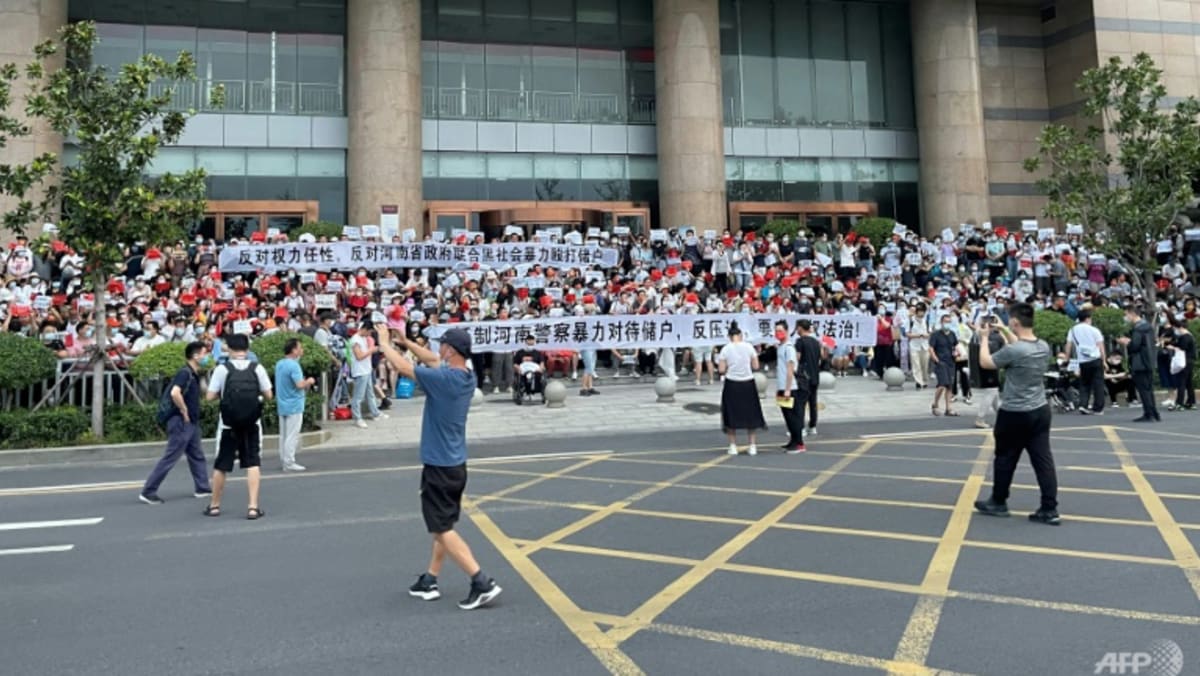
BEIJING: Customers of rural Chinese banks whose withdrawals have been frozen will begin to get some of their money back on Friday (Jul 15), regulators said, after depositors clashed with authorities at a rare protest over the weekend.
China’s rural banking sector has been hit hard by Beijing’s efforts to rein in a property bubble and spiralling debt, in a financial crackdown that has had ripple effects across the world’s second-largest economy.
Four banks in Henan province have frozen all cash withdrawals since mid-April, leaving thousands of savers without funds and sparking sporadic demonstrations.
In one of the largest of such rallies, hundreds gathered on Sunday outside a branch of the People’s Bank of China in Henan’s capital Zhengzhou demanding their money, with protesters later complaining that they were assaulted by unidentified men.
Some depositors will now be able to get their money back, Henan’s provincial banking and insurance regulator said in a statement late on Monday.
Individual customers with deposits of up to 50,000 yuan (US$7,442) will be repaid starting from Friday, the regulator said, while arrangements for repaying others will be separately announced.
“Funds that are involved in illegal or criminal (activity) will temporarily not be repaid,” the regulator said.
The announcement came a day after local police said it had arrested members of a “criminal gang” accused of taking over local banks and making illegal transfers through fictitious loans.
Protests are rare in tightly controlled China, where authorities enforce social stability at all costs and opposition is swiftly repressed.
But desperate citizens have occasionally succeeded in organising mass gatherings, usually when their targets are local governments or individual corporations.
Some of Sunday’s demonstrators accused officials of colluding with local banks to suppress rallies.
Provincial authorities were suspected last month of abusing the country’s mandatory COVID-19 health code to effectively bar protesters from public spaces.
The pass has become a ubiquitous part of life in China under Beijing’s strict zero-COVID strategy, and is required to access the vast majority of buildings, shopping centres, public places and also certain public transport.

